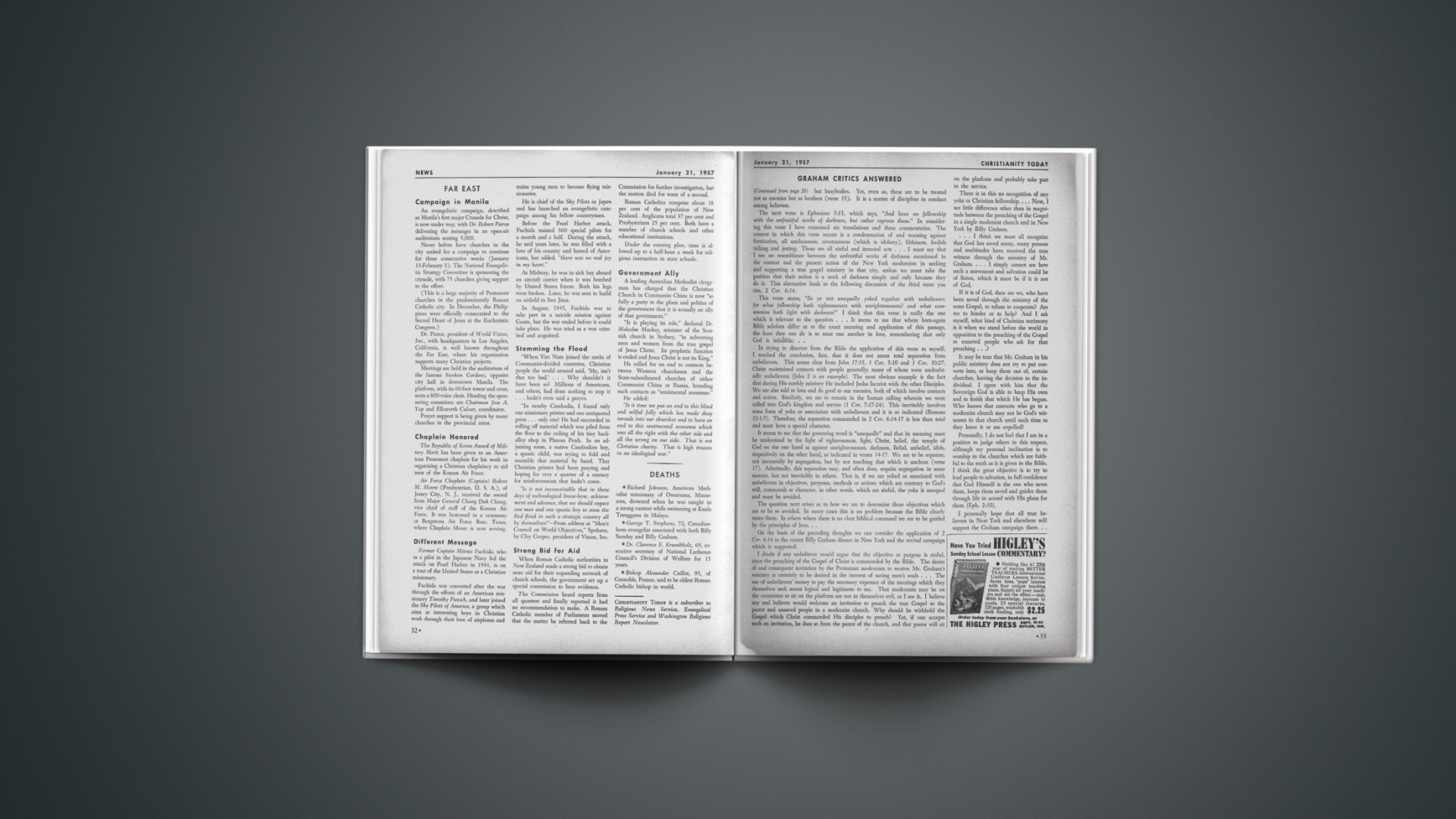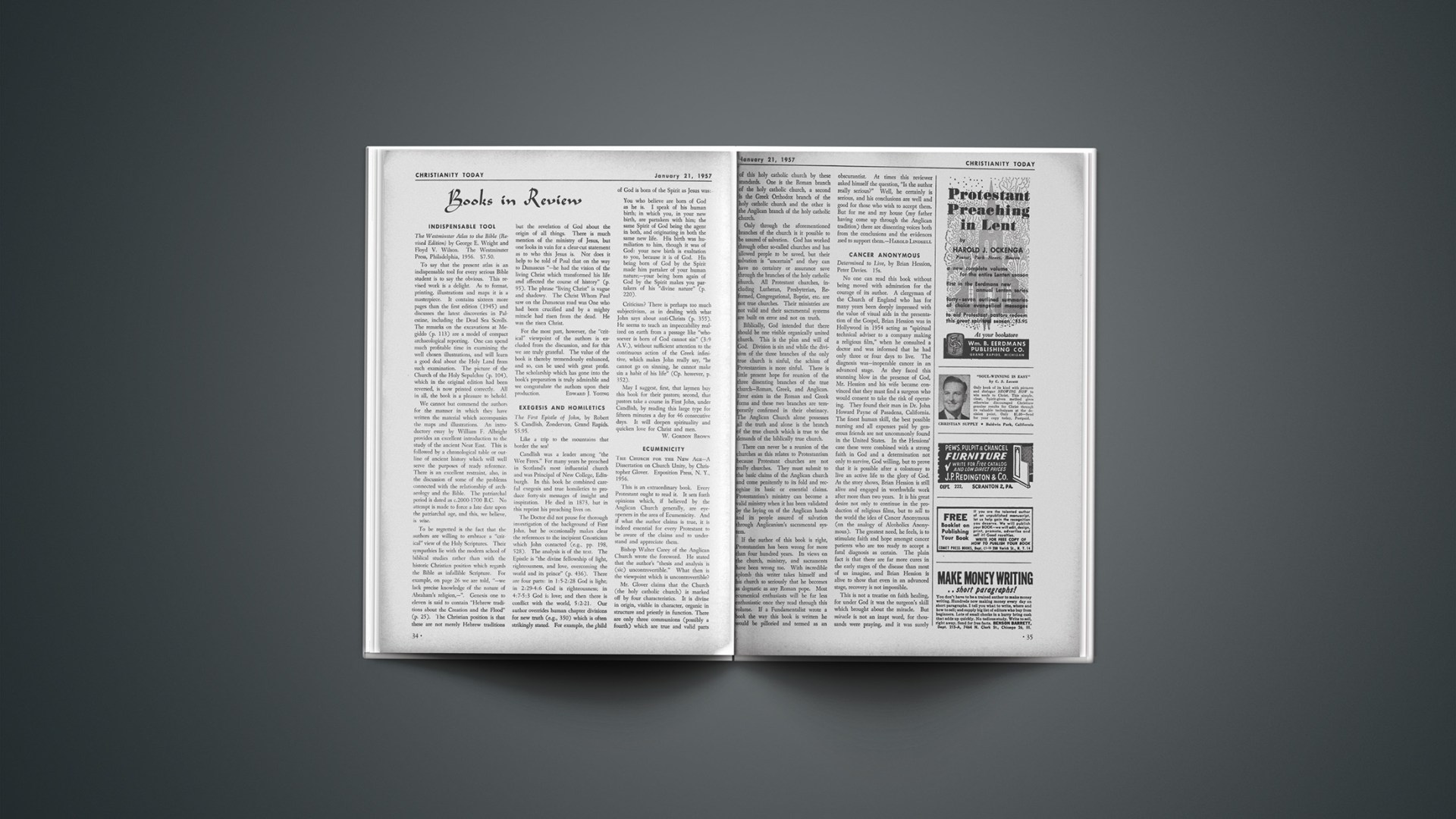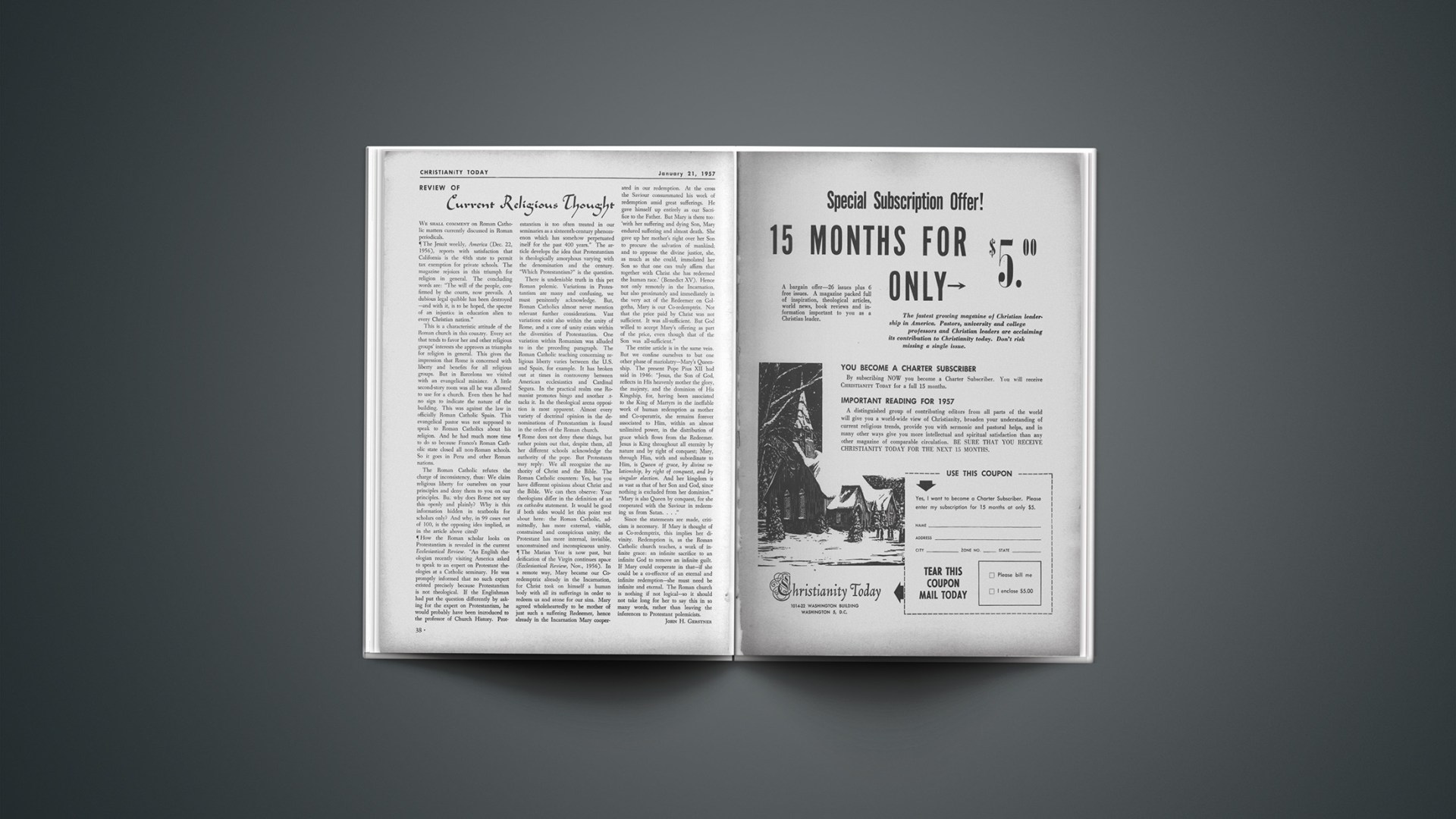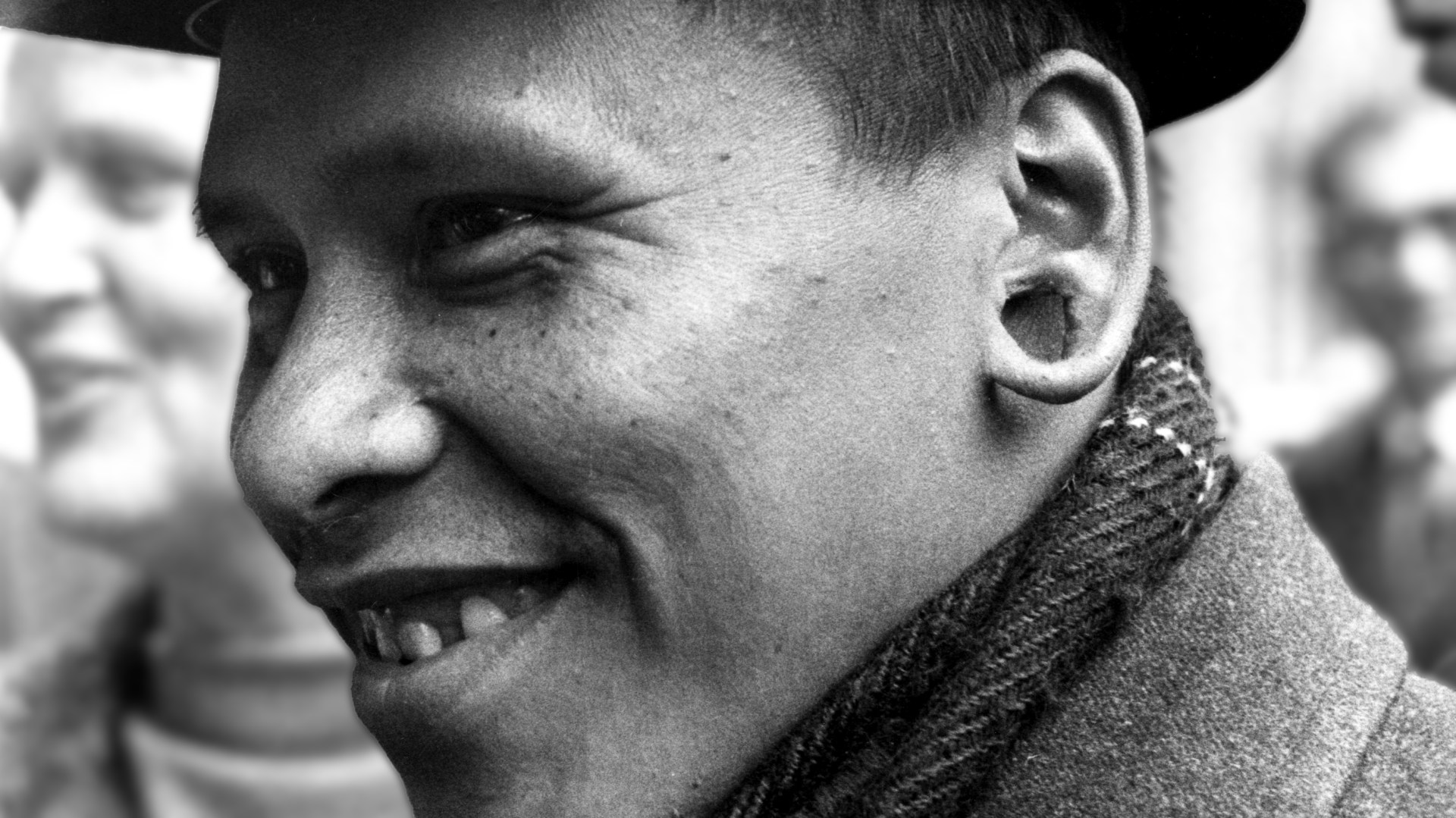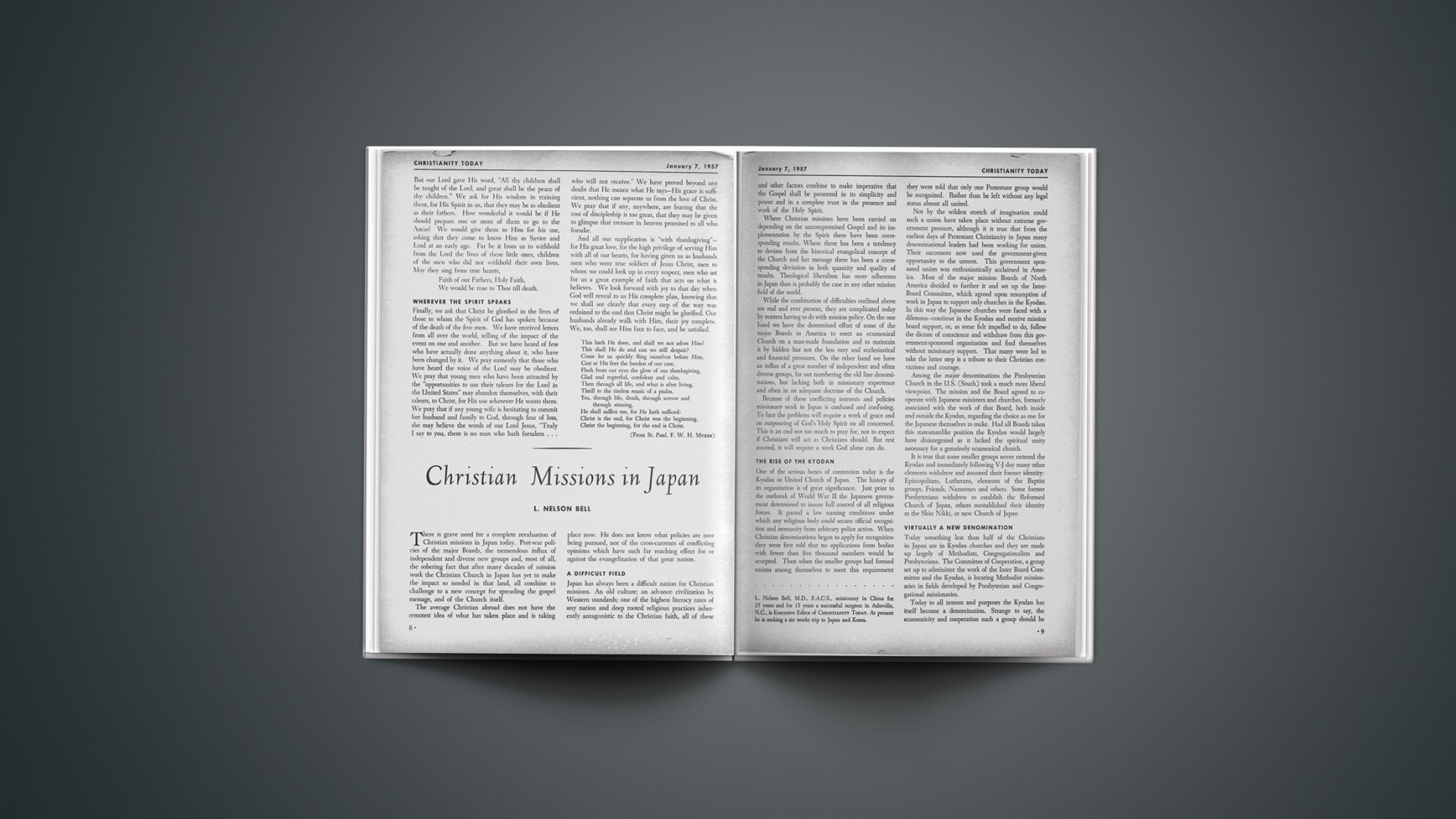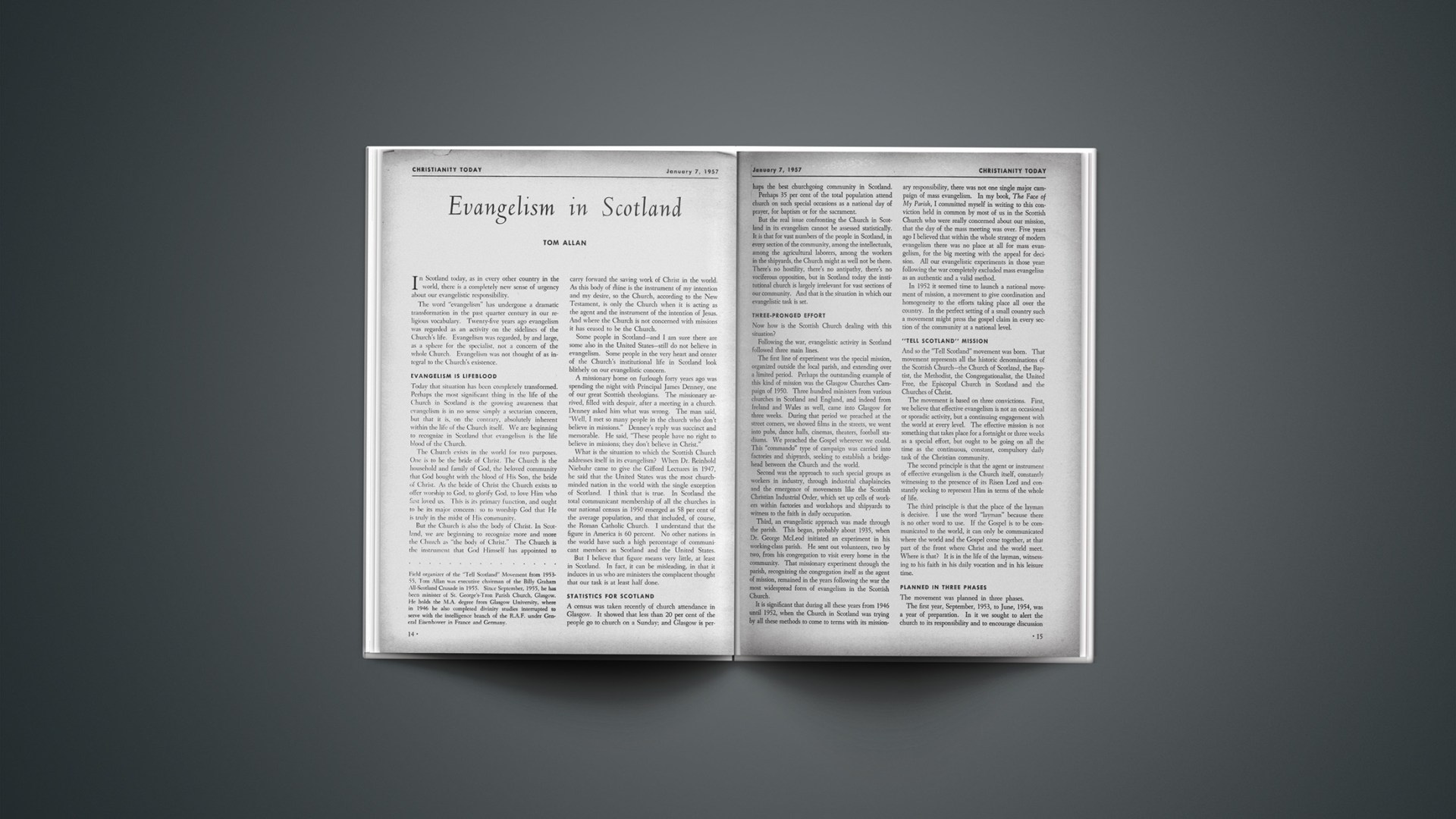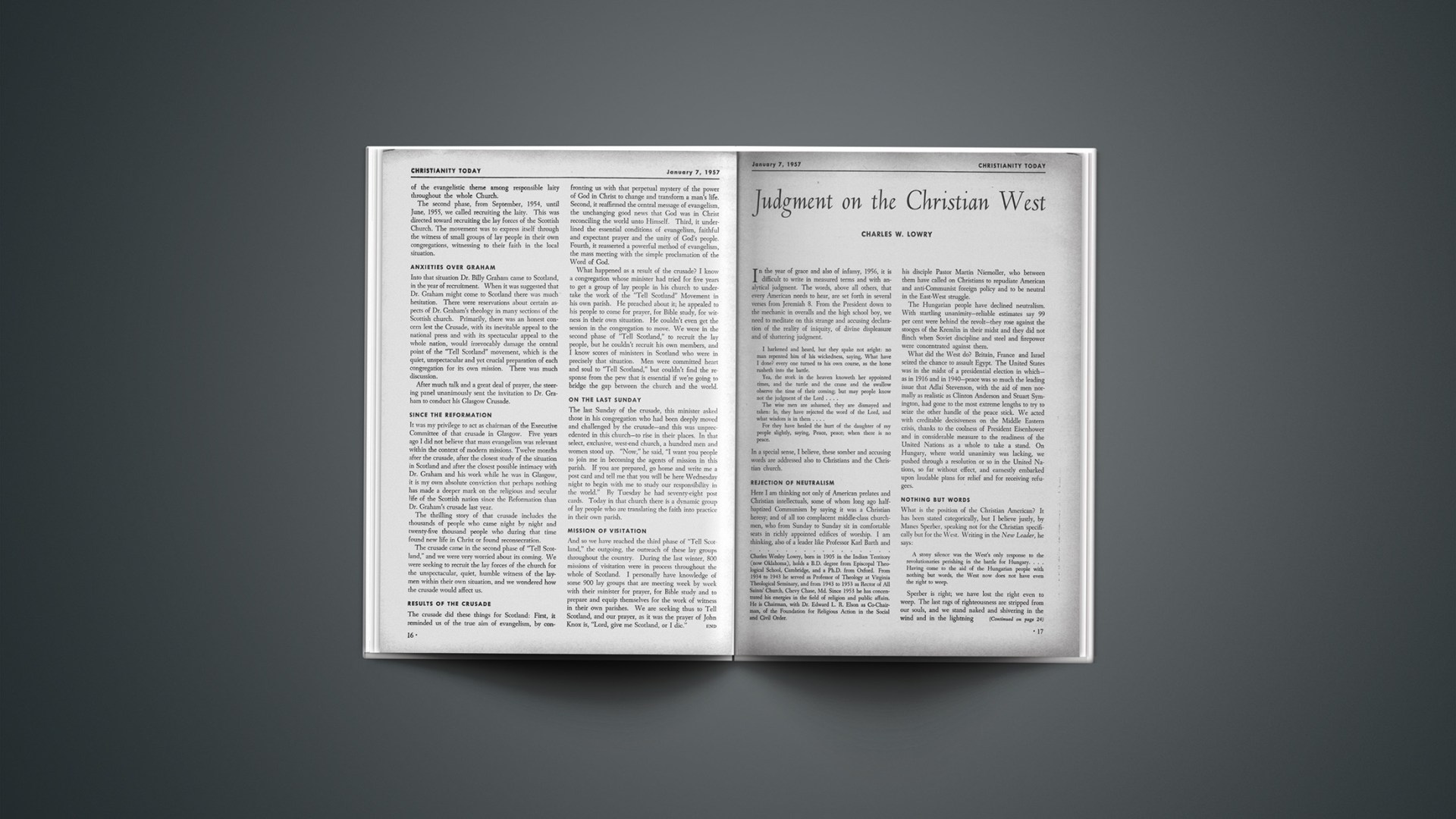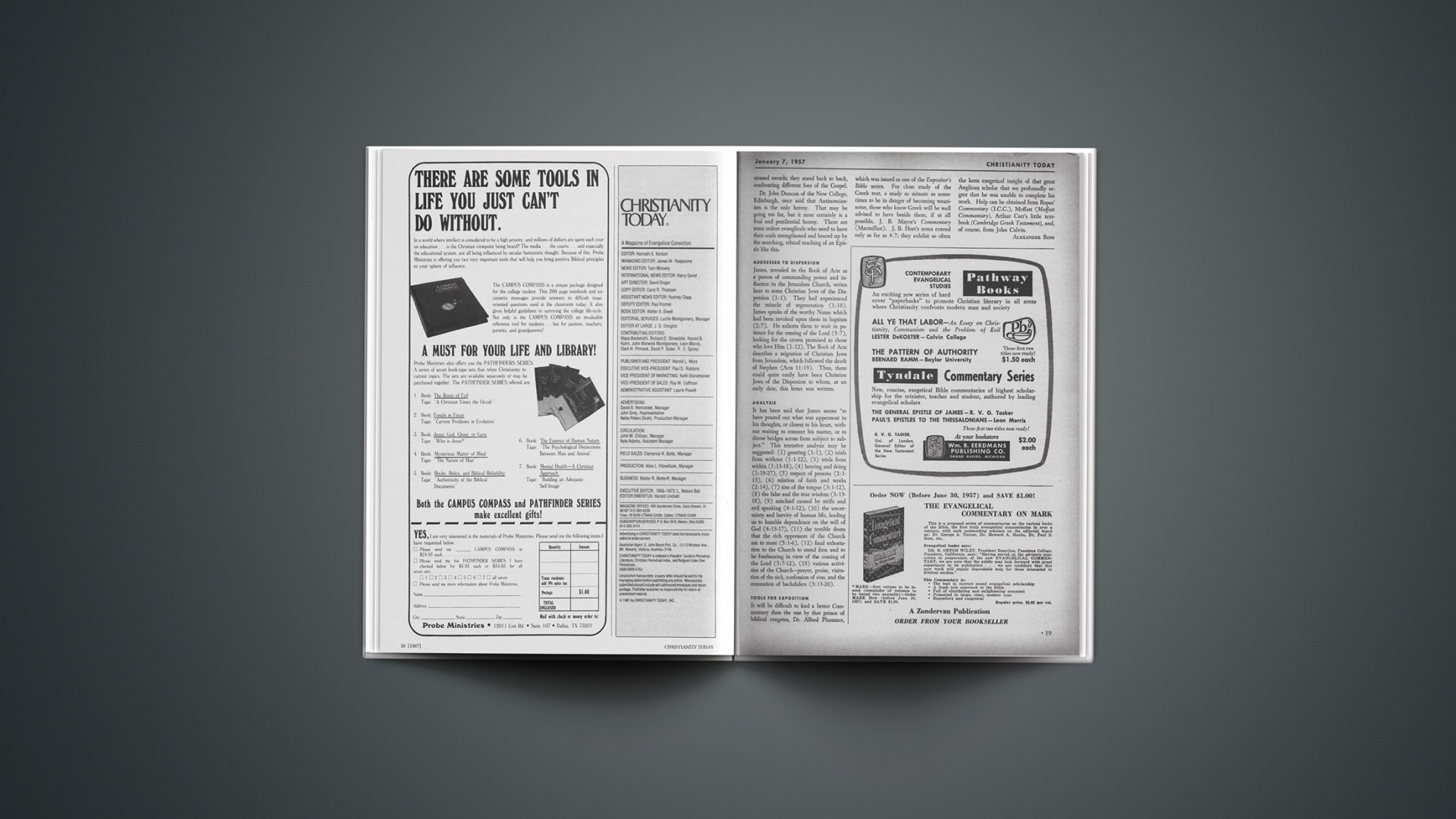Campaign In Manila
An evangelistic campaign, described as Manila’s first major Crusade for Christ, is now under way, with Dr. Robert Pierce delivering the messages in an open-air auditorium seating 5,000.
Never before have churches in the city united for a campaign to continue for three consecutive weeks (January 13-February 3). The National Evangelistic Strategy Committee is sponsoring the crusade, with 75 churches giving support to the effort.
(This is a large majority of Protestant churches in the predominantly Roman Catholic city. In December, the Philippines were officially consecrated to the Sacred Heart of Jesus at the Eucharistic Congress.)
Dr. Pierce, president of World Vision, Inc., with headquarters in Los Angeles, California, is well known throughout the Far East, where his organization supports many Christian projects.
Meetings are held in the auditorium of the famous Sunken Gardens, opposite city hall in downtown Manila. The platform, with its 60-foot tower and cross, seats a 600-voice choir. Heading the sponsoring committee are Chairman Jose A. Yap and Ellsworth Culver, coordinator.
Prayer support is being given by many churches in the provincial areas.
Chaplain Honored
The Republic of Korea Award of Military Merit has been given to an American Protestant chaplain for his work in organizing a Christian chaplaincy to aid men of the Korean Air Force.
Air Force Chaplain (Captain) Robert M. Moore (Presbyterian, U. S. A.), of Jersey City, N. J., received the award from Major General Chang Duk Chang, vice chief of staff of the Korean Air Force. It was bestowed in a ceremony at Bergstrom Air Force Base, Texas, where Chaplain Moore is now serving.
Different Message
Former Captain Mitsuo Fuchida, who as a pilot in the Japanese Navy led the attack on Pearl Harbor in 1941, is on a tour of the United States as a Christian missionary.
Fuchida was converted after the war through the efforts of an American missionary Timothy Pietsch, and later joined the Sky Pilots of America, a group which aims at interesting boys in Christian work through their love of airplanes and trains young men to become flying missionaries.
He is chief of the Sky Pilots in Japan and has launched an evangelistic campaign among his fellow countrymen.
Before the Pearl Harbor attack, Fuchida trained 360 special pilots for a month and a half. During the attack, he said years later, he was filled with a love of his country and hatred of Americans, but added, “there was no real joy in my heart.”
At Midway, he was in sick bay aboard an aircraft carrier when it was bombed by United States forces. Both his legs were broken. Later, he was sent to build an airfield in Iwo Jima.
In August, 1945, Fuchida was to take part in a suicide mission against Guam, but the war ended before it could take place. He was tried as a war criminal and acquitted.
Stemming The Flood
“When Viet Nam joined the ranks of Communist-divided countries, Christian people the world around said, ‘My, isn’t that too bad.’ … Why shouldn’t it have been so? Millions of Americans, and others, had done nothing to stop it … hadn’t even said a prayer.
“In nearby Cambodia, I found only one missionary printer and one antiquated press … only one! He had succeeded in rolling off material which was piled from the floor to the ceiling of his tiny back-alley shop in Phnom Penh. In an adjoining room, a native Cambodian boy, a spastic child, was trying to fold and assemble that material by hand. That Christian printer had been praying and hoping for over a quarter of a century for reinforcements that hadn’t come.
“Is it not inconceivable that in these days of technological know-how, achievement and advance, that we should expect one man and one spastic boy to stem the Red flood in such a strategic country all by themselves?”—From address at “Men’s Council on World Objectives,” Spokane, by Clay Cooper, president of Vision, Inc.
Strong Bid For Aid
When Roman Catholic authorities in New Zealand made a strong bid to obtain state aid for their expanding network of church schools, the government set up a special commission to hear evidence.
The Commission heard reports from all quarters and finally reported it had no recommendation to make. A Roman Catholic member of Parliament moved that the matter be referred back to the Commission for further investigation, but the motion died for want of a second.
Roman Catholics comprise about 16 per cent of the population of New Zealand. Anglicans total 37 per cent and Presbyterians 25 per cent. Both have a number of church schools and other educational institutions.
Under the existing plan, time is allowed up to a half-hour a week for religious instruction in state schools.
Government Ally
A leading Australian Methodist clergyman has charged that the Christian Church in Communist China is now “so fully a party to the plans and politics of the government that it is actually an ally of that government.”
“It is playing its role,” declared Dr. Malcolm Mackay, minister of the Scottish church in Sydney, “in subverting men and women from the true gospel of Jesus Christ. Its prophetic function is ended and Jesus Christ is not its King.”
He called for an end to contacts between Western churchmen and the State-subordinated churches of either Communist China or Russia, branding such contacts as “sentimental nonsense.”
He added:
“It is time we put an end to this blind and wilful folly which has made deep inroads into our churches and to have an end to this sentimental nonsense which sees all the right with the other side and all the wrong on our side. That is not Christian charity. That is high treason in an ideological war.”
Deaths
*Richard Johnson, American Methodist missionary of Owatonna, Minnesota, drowned when he was caught in a strong current while swimming at Kuala Trengganu in Malaya.
*George T. Stephens, 72, Canadian-born evangelist associated with both Billy Sunday and Billy Graham.
*Dr. Clarence E. Krumbholz, 69, executive secretary of National Lutheran Council’s Division of Welfare for 15 years.
*Bishop Alexander Caillot, 95, of Grenoble, France, said to be oldest Roman Catholic bishop in world.
CHRISTIANITY TODAYis a subscriber to Religious News Service, Evangelical Press Service and Washington Religious Report Newsletter.

